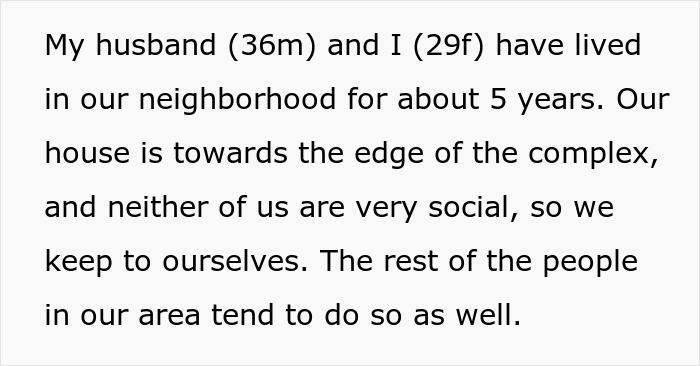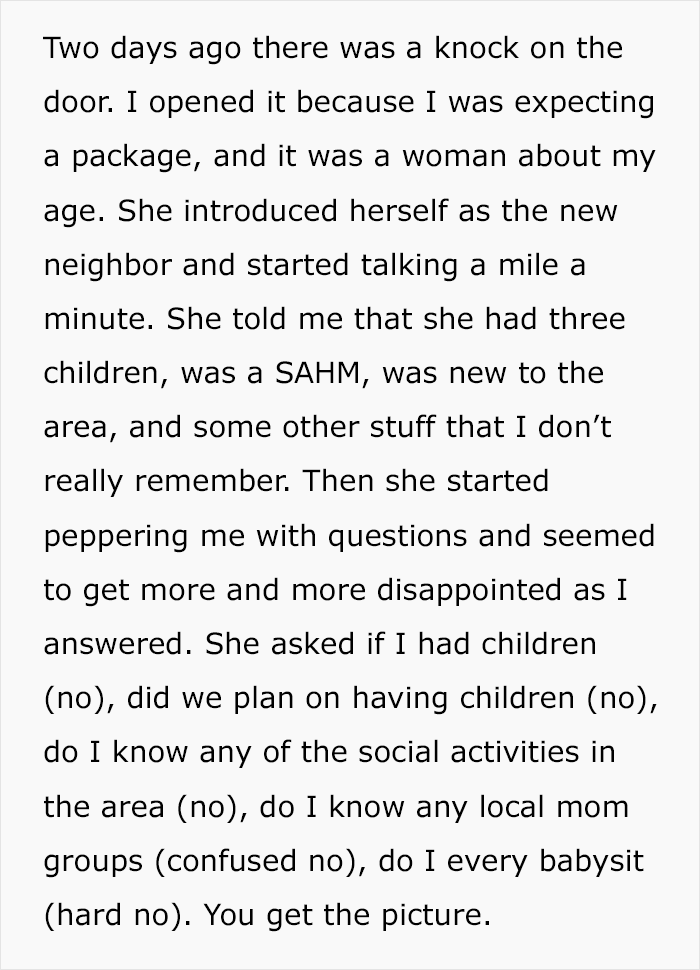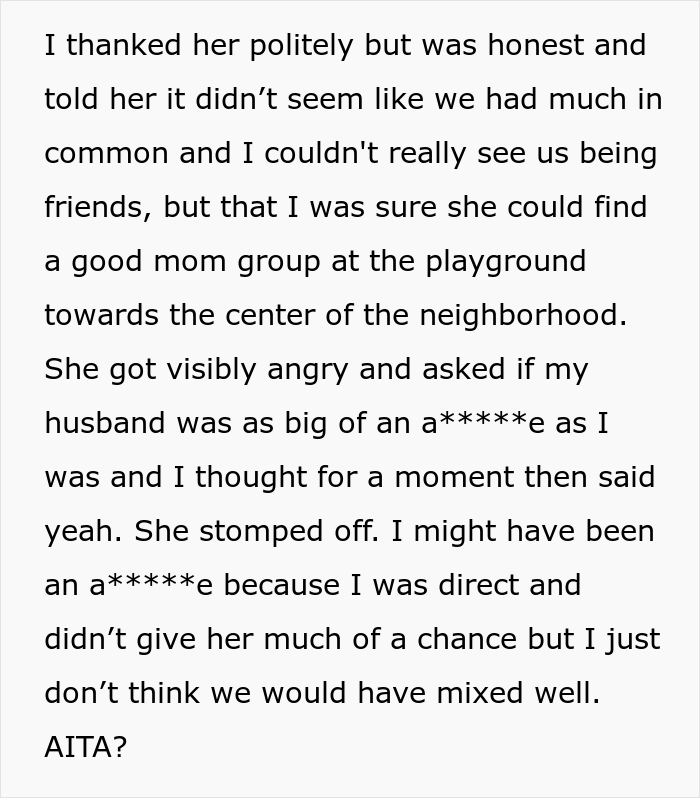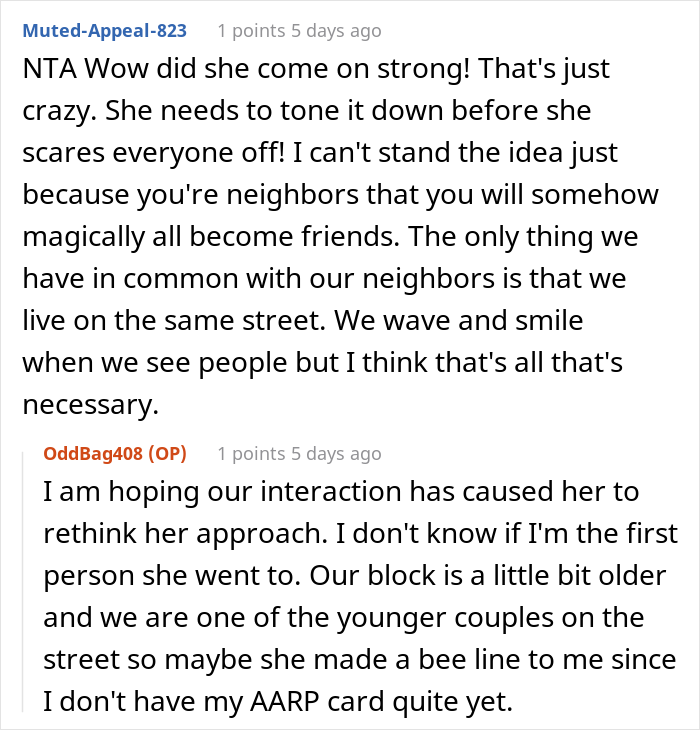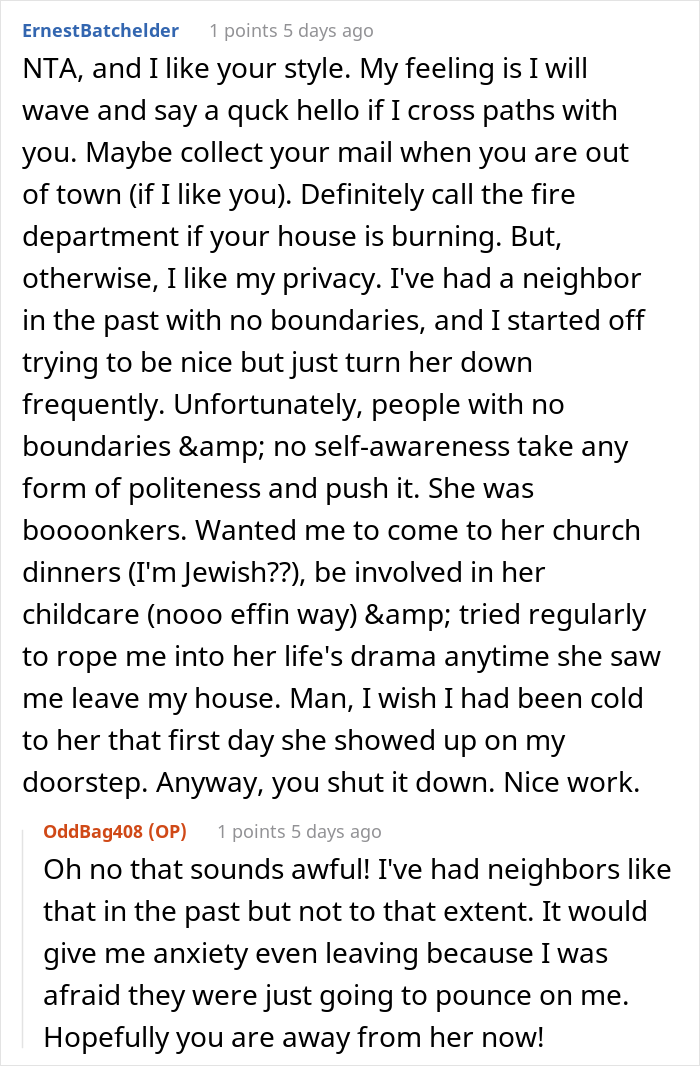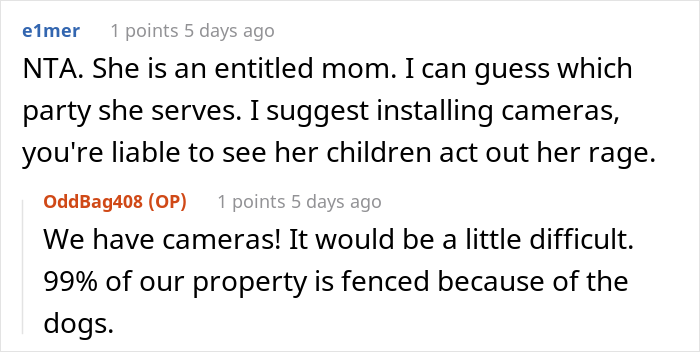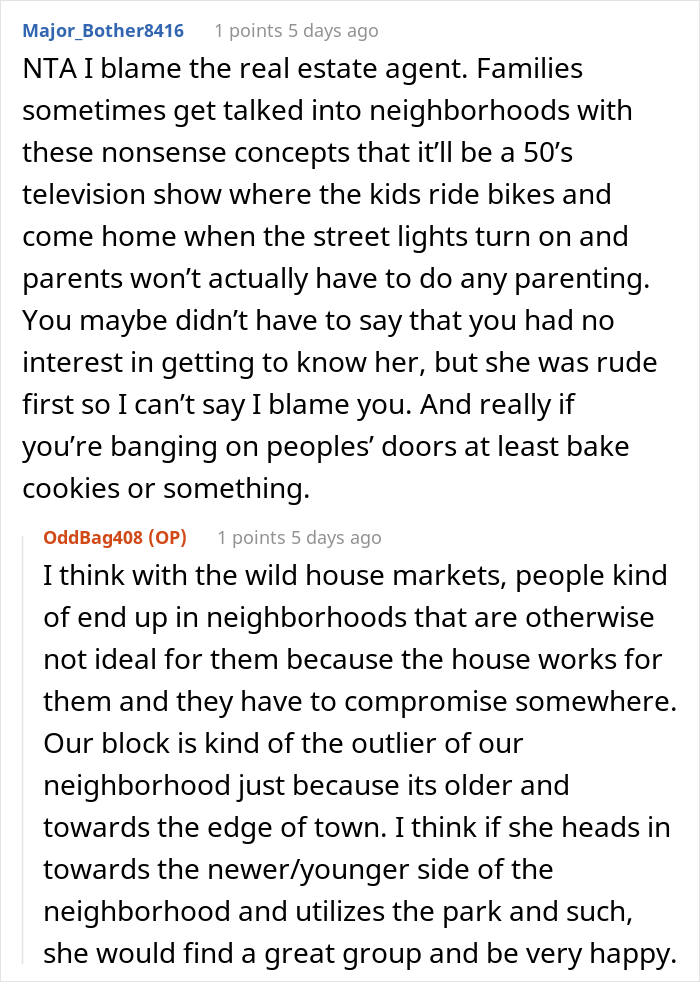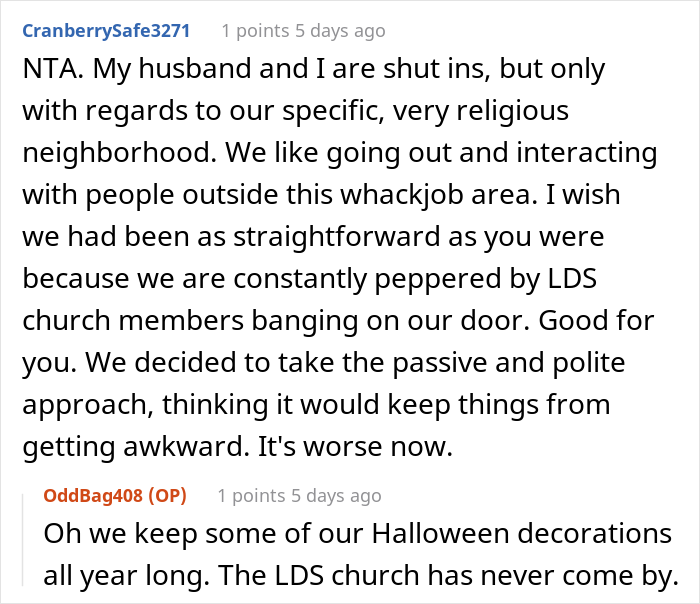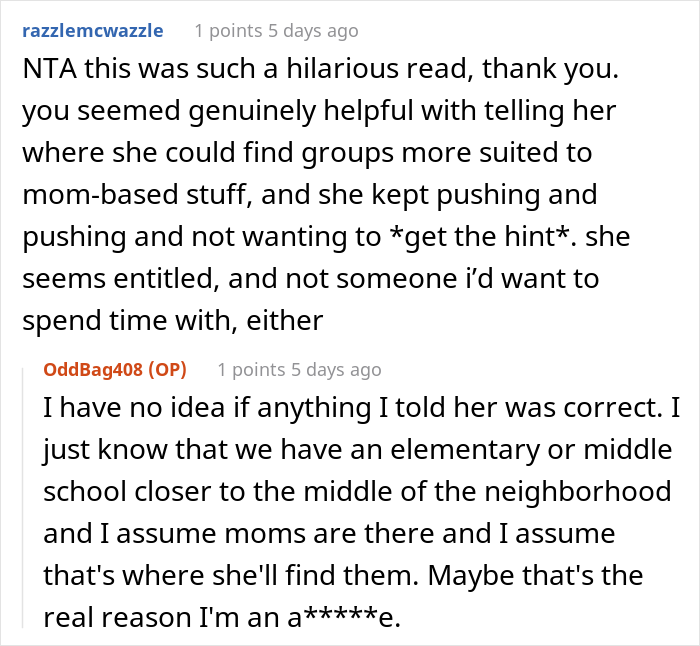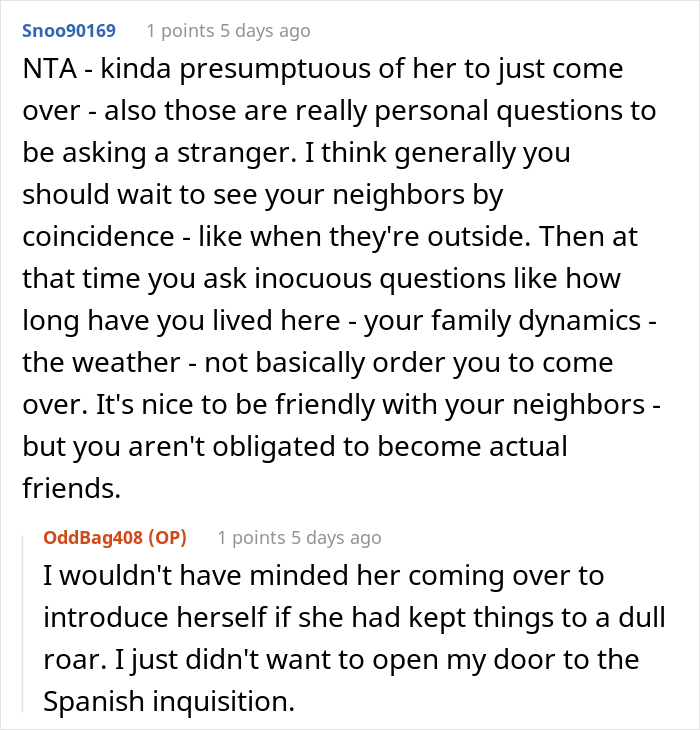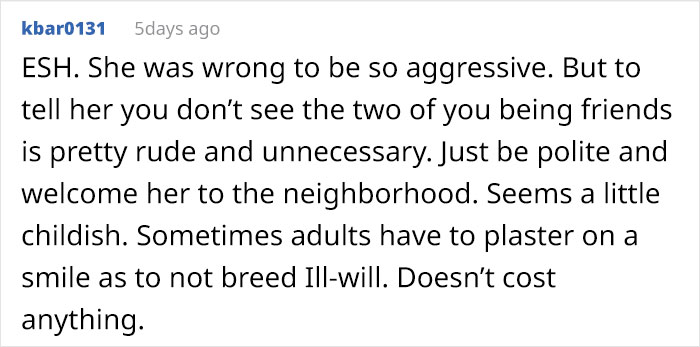Although the phrase “love thy neighbor” sounds wonderful in theory, it is incredibly challenging to put into practice. especially if you prefer to remain to yourself and happen to have very little in common. Indeed, “excellent fences make good neighbors.” No matter how courteous someone is, there are moments when people just want to be left alone.
A Redditor recently became involved in some neighborly conflict, and she wanted to know what the AITA subreddit thought about it. After more than five years of residing in her neighborhood, the woman watched a new neighbor, a three-time working mom—move in down the street. The outgoing new neighbor’s diametrically opposed political views truly tried the patience of the reserved Redditor, and she detailed exactly what transpired next. View the complete account below, then let us know who you believe to be at fault. What different actions would you have taken? In the meantime, Pandas, tell us in the comments how well you get along with your neighbors. Do you go over to borrow some salt and have a lengthy conversation about the weather, or do you just nod and say “hello” quickly?
1. A woman who prefers to remain to herself asked the AITA community if she handled a chatty new neighbor incorrectly.
Image credits: dadblunders (not the actual photo)
2. OP and her husband were introverts and despite living in a neighborhood for long they did not interact much with others
3. Somone moved recently but their political ideas did not match that of OP’s family
6. OP after thanking the
7.
Image credits: Eric Lewis
She explained to us that even though honesty is the best policy as a rule, “sometimes a person’s efforts at honesty come off a little too ‘brutal’ and feelings are hurt and relationships damaged, and no greater good is served.” Being a tad more emotionally tactical when speaking to an overly chatty neighbor can help them become more aware of themselves and may help avoid tension down the line. It’s also best not to outright tell someone you don’t want to be their friend.
According to Professor Degges-White, from Northern Illinois University, depending on the situation, telling a white lie or opting for a gentle let-down is a better option.
“The ‘new neighbor’ may be blind to the effect her chattiness is having on others and perhaps a little gentle feedback might actually help the neighbor grow in self-awareness and become a better neighbor,” she explained the potential pros of a more diplomatic approach.
“Bluntly saying that you don’t ever see yourselves becoming friends may leave a bad taste in the neighbor’s mouth and the acrimony that results might last for a long, long time,” the psychology expert told Bored Panda.
“Another important consideration is that neighbors can impact our home lives in significant ways! You don’t want to have poor relationships with people you’re going to be in close proximity to each and every day. That’s added stress no one needs, given the amount of stress that we’re all feeling after the last couple of years due to world events!” the professor pointed out that nobody needs that kind of additional stress in their lives.
If a neighbour doesn’t know when to quit talking, you can tactically leave, according to Professor Degges-White.
“When a neighbor wants to chat too long at the garden fence, just make up reasons that you’ve ‘got to run.’ If their chattiness is interrupting a peaceful evening in your backyard, let the neighbor know that ‘it’s been a stressful day and I’m just out here for some peace and quiet,’ or something along those lines,” she said how we can drop a gentle hint that we need some privacy.
“If you really just need to tell your neighbor that you ‘don’t want to be her friend,’ which sounds very grade-schoolish, you can share something like, ‘I appreciate your friendliness and am glad to hear that you like our neighborhood.’ Then just head inside or just turn your back and get on with whatever you’re doing. Hopefully, the new neighbor will get the message, but by choosing not to engage, you’re making your boundaries clear.”
Understanding whether being diplomatic is preferable to being completely honest in a given situation requires a high level of emotional intelligence. Whatever the reality may be, there are instances when using indirect language is advantageous. However, there are other situations when people really need to hear your opinion. Everything depends on the circumstances and the people involved. Someone who is a little more sensitive might prefer you to be a little more tactful to protect their feelings. Others, though, merely fail to get the suggestion or mistake politeness for uncertainty. Well, the numbers are mind-boggling. A staggering 57 percent of those surveyed claimed to know only some of their neighbors.
Understanding whether being diplomatic is preferable to being completely honest in a given situation requires a high level of emotional intelligence. Whatever the reality may be, there are instances when using indirect language is advantageous. However, there are other situations when people really need to hear your opinion.
Everything depends on the circumstances and the people involved. Someone who is a little more sensitive might prefer you to be a little more tactful to protect their feelings. Others, though, merely fail to get the suggestion or mistake politeness for uncertainty.
Well, the numbers are mind-boggling. A staggering 57 percent of those surveyed claimed to know only some of their neighbors, it appears that people who live in rural areas of the US are more likely to know everyone who lives nearby. Ironically, they also tend to isolate themselves more.
8. The woman added extra commentary to her article in the comments section.
10.
11.
12. Understandable
13. NTA
14. We all know this
15. I definitely agree
16. The second comment here will make you laugh
Don’t forget to share your comments on the above-mentioned story. Say tuned for more content.




